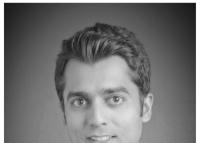The Bench and the Bar
Bar, Bench & Litigation
The Tamil Nadu government has asked the Supreme Court for relief from a Madras high court order directing it to put in place Central police (CISF) security worth Rs 16.6 crore at the Madras high court, reported the Times of India.
Madras HC Chief Justice Kishan Kaul and Justice TS Sivagnanam had on 30 October ordered the state government to deposit Rs 16.6 crore, within a week, with the central government for deploying a 650-personnel CISF contingent at the high court for six months, and ordered that the new security protocol should be in place on 16 November.
The Tamil Nadu government told the Supreme Court that lawyers and police on the Madras high court have no bad blood ‘as on date’ and that the problem lies in the 29 October 2009 administrative order which requires state police to get a prior permit before deploying forces. The government said that this takes away the state police’ free hand to act during law and order disturbances on court campuses.
“Had the administrative restraint been lifted, the state police authority would be in a better position to give better security than any central force on the high court campus,” the Tamil Nadu chief secretary told the court, it was reported.
The Madras high court has been suffering from disruptions and disturbance due to rallies, demonstrations, occupation of chief justice’s court and ruckus by lawyers for a few months now. Chief Justice of India H L Dattu had also taken note of the disturbances in the HC and had remarked about the ‘fear psychosis in the court halls’. Bomb hoaxes have also been received by the high court in the last few months.
The state government is opposing any central force to take either full or a part of security arrangements in the high court and has told the Supreme Court “It is not open to the high court to take away the powers of the state and entrust it to the central security...It would amount to encroachment of the powers of the government by another wing of the State - Judiciary.”
“Further it was recorded that deployment of central force would lead to jurisdictional issues and consequent problems, and the introduction of central police force would worsen the prevailing situation due to non-familiarity of local language,” the SLP stated, it was reported.
Bar, Bench & Litigation
 JPMorgan has hired Deutsche Bank vice president (legal) Yash Yadav in the same role at JP Morgan as a senior markets lawyer, specialising in structured finance.
JPMorgan has hired Deutsche Bank vice president (legal) Yash Yadav in the same role at JP Morgan as a senior markets lawyer, specialising in structured finance.
Bar, Bench & Litigation
The Supreme Court refused to stay the rules regarding the Certification of Practice (CoP) of the Bar Council of India (BCI) reported webindia.
A division bench of Justices Pinaki Chandra Ghosh and RK Agrawal were hearing transfer petition of BCI and declined to stay the CoP rules. The court had stayed the CoP rules in August.
The CoP rules require practicing lawyers to renew their registration with the bar council every five years. The deadline for the registration was extended to 31 December 2015 by the BCI following the orders of the court.
Senor advocate KK Venugopal was briefed by advocate Ardhendumauli Kumar Prasad for the BCI He argued in court that the number of fake lawyers was growing in the bar. Venugopal reportedly submitted that these advocates move freely in courts wearing robes and soon the situation in the Madras high court would be replicated everywhere else.
The Supreme Court allowed the BCI to continue the CoP rules but also reportedly warned it not to be prejudiced against lawyers not practicing in courts. The division bench adjourned the matter for further hearing without giving any next date, it was reported.
SCOI Reports
As Justice Khehar-led Constitution Bench reassembles today (3 November) to hear proposals for reforming the revived collegium to select judges of the higher judiciary, it cannot help listening to the echoes of its momentous decision to strike down the 99th Amendment Act and the NJAC Act in their entirety, even two weeks after it was delivered on 16 October.
Bar, Bench & Litigation
The Hindu Succession (Amendment) Act 2005 will not apply to women whose father died before the amendement came in force, ruled the Supreme Court, effectively withdrawing such women’s right to equal share in their fathers’ property, reported The Indian Express.
The Supreme Court bench of justices Anil R Dave and Adarsh K Goel ruled that the amendment to the act cannot apply retrospectively and a daughter will become a co-sharer in inherited land from her father only if the father was alive on 9 September 2005.
Females are already ineligible for a share if the property was alienated or partitioned before 20 December 2004, the date the bill was introduced, and this judgment goes a step further to disqualify another class of women.
The bench overruled the view taken by some high courts that the amendment should be applied retrospectively as it is a social legislation.
The judges observed in the order that “the text of the amendment itself clearly provides that the right conferred on a ‘daughter of a coparcener’ is ‘on and from the commencement’ of the amendment Act. In view of plain language of the statute, there is no scope for a different interpretation than the one suggested by the text,” it was reported.
Bar, Bench & Litigation
The Bar Council of India (BCI) is to continue functioning as per current procedure, as the BCI succeeded in its appeal against the Madras high court order that had suggested transferring its functions to an expert judicial body, reported The Hindu.
The Madras high court on Friday stayed its justice N Kirubakaran’s order in which he had given 14 radical recommendations including the transfer of BCI’s function to a body headed by a retired Supreme Court judge.
A bench of Chief Justice SK Kaul and justice TS Shivagnanam passed an interim stay on four of the 14 recommendations in justice Kirubakaran’s 6 October order.
Bar, Bench & Litigation
 In a setback to the Arvind Kejriwal government, the Delhi high court on Friday quashed the executive decision to get the books of accounts of the three private power distribution companies (discoms) in the city-capital scrutinised by the Comptroller and Auditor General of India (CAG).
In a setback to the Arvind Kejriwal government, the Delhi high court on Friday quashed the executive decision to get the books of accounts of the three private power distribution companies (discoms) in the city-capital scrutinised by the Comptroller and Auditor General of India (CAG).
Bar, Bench & Litigation
According to internet freedom watchdog Freedom House, “Internet freedom in India has improved in the past year” in its report of 65 countries, with India having seen “positive developments relating to ‘regulatory framework, declining detentions for online speech and burgeoning digital access’”, reported the WSJ, following the Supreme Court striking down section 66A _of the _IT Act:
More than half of the countries included in the report saw online freedom deteriorate since June 2014, the report said.India improved its measure on two criteria: the obstacles to Internet access and violations of user rights. Its total score went up from 42 to 40, with Internet penetration leaping from 5% to 18% in the past five years. The lower the score, the better the country’s Internet freedom.
Full India country report available here:
Key Developments:
Key Developments
-
The Supreme Court struck down Section 66A of the IT Act in 2015, which had been the cause of several arrests for online speech, particularly on social media (see Legal Environment).
-
Though the Supreme Court also upheld the IT Act’s Section 69A, which authorizes government blocking of online content, it did make the blocking process more transparent, and strengthened intermediary liability protection (see Blocking and Filtering and Content Removal).
-
Website blocks ordered by the government or the courts temporarily affected entire platforms, such as Vimeo or Google Docs (see Blocking and Filtering).
-
In April 2015, over 1 million people rallied to protect net neutrality and prevent regulation allowing telecommunications providers to charge extra for select services (see Digital Activism).
Bar, Bench & Litigation
Hardik Patel, a young leader agitating for reservations to Patidar community and currently in jail on sedition charges moved the Gujarat high court challenging the interception of his and his associates’ phone calls by the police and sought an independent inquiry into the matter, reported The New Indian Express
As Patel is in jail, his father filed the petition on his behalf. Patel claims that his phone was unlawfully tapped by the police, which admitted in the FIR against him that it had tapped his phones.
The police registered an FIR against Hardik and his aides Chirag Patel, Ketan Patel, Dinesh Patel, Alpesh Kathiria and Amrish Patel on 21 October on charges of sedition and waging war against the government. The FIR also alleges that the Patel leaders and members of Patidar Anamat Andolan Samiti conspired to topple the state government, it was reported.
The report claims that the police had started tapping the phones in August, though the permission for it was obtained only on 3 October. The matter is likely to come up for hearing on 3 November.
Bar, Bench & Litigation
 Cyril Amarchand Mangaldas (CAM) couldn’t save apparel exporter, the Tavoy Group, from the Competition Appellate Tribunal (COMPAT) imposing Rs 5 lakh in costs against it.
Cyril Amarchand Mangaldas (CAM) couldn’t save apparel exporter, the Tavoy Group, from the Competition Appellate Tribunal (COMPAT) imposing Rs 5 lakh in costs against it.
Bar, Bench & Litigation
A Delhi district court settled a 54-year-old property dispute while dismissing a Delhi Development Authority (DDA) plea seeking right over a land in east Delhi. The agency did not came into existence at that time, the court stressed.